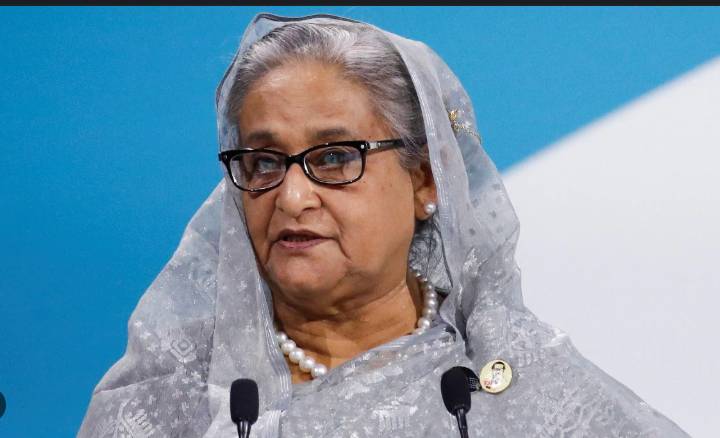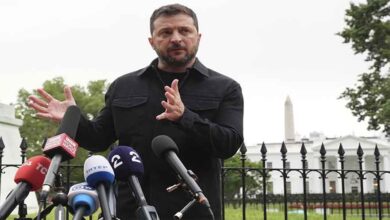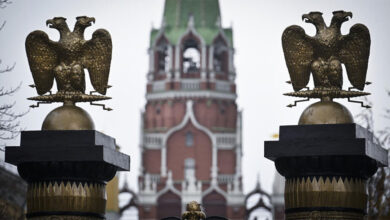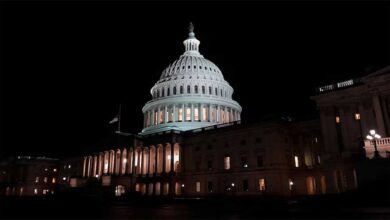Former Bangladesh prime minister Sheikh Hasina has dismissed suggestions that the United States played an active role in supporting groups that sought her removal from power under the pretext of “restoring democracy”.
In an interview with Indian TV channel CNN-News18, Hasina said Bangladesh has maintained “good relationships with successive US administrations” and that there is “no reason to believe” Washington or other foreign powers were directly involved in the country’s political developments.
Though she acknowledged that the country’s interim leader, economist Muhammad Yunus, had built a network of influential supporters in the West, Hasina said many of those admirers had mistaken his economic reputation for democratic credibility.
“While Yunus has cultivated a network of influential Western admirers from his work as an economist, those who admired him mistook his economic theories for democratic credentials. Now, this illusion is fading, and those admirers are increasingly seeing him for what he is: an unelected head of state who has placed radical extremists in his cabinet, dismantled Bangladesh’s constitution, and stood silent while minorities have been oppressed,” she said.
Hasina also said US President Donald Trump, with whom she said she had “very good relations,” had publicly expressed his dislike of Yunus.
The ex-PM added: “If Westerners think Yunus is a friendly face, they are being fooled. In fact, he is being used as the frontman by the extremists in his administration, who are pursuing a sectarian, score-settling, and socially regressive domestic agenda.”
Hasina further challenged Yunus’s democratic credentials, noting his lack of an electoral mandate and his administration’s decision to bar the Awami League — a party she stated is “supported by millions and which has been elected nine times in the past” — from the upcoming election.
In her first such detailed conversation since leaving Dhaka, Hasina offers a searing account of the events that led to her ouster and the rise of Muhammad Yunus.
Hasina described an “orchestrated coup” masked as reform, implicating radical factions and warning of a growing extremist influence under the current regime. She defended her record, denied Western involvement in her ouster, and thanked India for sanctuary and patience.
When asked as to how far was Army Chief General Waker-uz-Zaman involved in negotiating your exit, Hasina said the military was faced with an impossible situation: defending a constitutional government against overwhelming mob violence while avoiding any further loss of life. Our discussions focused on preventing a complete breakdown in law and order and ensuring the safety of my family and staff and of ordinary civilians on the streets of Dhaka.
Hasina trial verdict on Nov 17
Bangladeshi judges will issue the hugely anticipated verdict in the crimes against humanity trial of Sheikh Hasina on November 17, the chief prosecutor said Thursday.
Hasina, 78, has defied court orders to return from India to attend her trial on charges of ordering a deadly crackdown in a failed attempt to suppress a student-led uprising that saw her removal.
“Justice will be served according to the law,” chief prosecutor Tajul Islam told reporters.
“We have completed a long journey and are now in its final phase. The court will pronounce the verdict on the 17th.”
Hasina’s trial in absentia, which began on June 1, heard months of testimony alleging she ordered mass killings.
According to the United Nations, up to 1,400 people were killed between July and August 2024 in her failed bid to hold on to power.
Prosecutors have filed five charges, including failure to prevent murder, amounting to crimes against humanity under Bangladeshi law. They have sought the death penalty if she is found guilty.
“We hope the court will exercise its prudence and wisdom, that the thirst for justice will be fulfilled, and that this verdict will mark an end to crimes against humanity,” Islam added.
Hasina has denied all the charges and called her trial a “jurisprudential joke”.
Her co-accused include former interior minister Asaduzzaman Khan Kamal — also a fugitive — and former police chief Chowdhury Abdullah Al-Mamun, who is in custody and has pleaded guilty.
Tensions are high as parties gear up for elections slated for February.
Hasina’s outlawed Awami League had called for a nationwide “lockdown” on Thursday, and there was a heavy deployment of security forces around the court, with armoured vehicles manning checkpoints.
A string of crude bombs have been set off across Dhaka this month, mainly petrol bombs hurled at everything from buildings linked to the government of interim leader Muhammad Yunus to buses and Christian sites.
One man was burned to death on November 11 when his parked bus was set on fire.
Bangladesh’s foreign ministry on Wednesday summoned India’s envoy to Dhaka, demanding that New Delhi block Hasina from talking to journalists.
“Harbouring such a notorious fugitive… and granting her a platform to spew hatred… are unhelpful to fostering a constructive bilateral relationship between the two countries,” the foreign ministry said, according to Bangladesh’s state-run BSS news agency.






